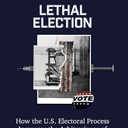In a dissenting opinion filed in the capital case of Moore v. Parker, Judge Boyce Martin of the U.S. Court of Appeals for the Sixth Circuit wrote that “the death penalty in this country is arbitrary, biased, and so fundamentally flawed at its very core that it is beyond repair.” Among his many criticisms of the way capital punishment is applied in the U.S., Martin specifically noted his concerns about the issues of innocence, inadequate defense counsel, and the overall arbitrariness of the system. He wrote:
I have been a judge on this Court for more than twenty-five years. In that time I have seen many death penalty cases and I have applied the law as instructed by the Supreme Court and I will continue to do so for as long as I remain on this Court. This my oath requires. After all these years, however, only one conclusion is possible: the death penalty in this country is arbitrary, biased, and so fundamentally flawed at its very core that it is beyond repair.
The flaws are numerous and the commentators have documented them well. There have been numerous death row exonerations. In fact, in some states the pace of exonerations competes with the pace of executions. See e.g., Death Penalty Information Center Searchable Database, http://www.deathpenaltyinfo.org/executions.php, last accessed September 6, 2005 (indicating that since 2000, Louisiana has executed two individuals while five individuals have been exonerated from death row). Blatant racial prejudice continues to infest the system. See, e.g. Miller-El v. Dretke, 125 S. Ct. 2317 (2005). Peremptory challenges tilt the balance from the outset in favor of death. Id. at 2340 (Breyer, J., concurring). The election of state judges creates another subtle bias toward death. Justice John Paul Stevens, Address to the American Bar Association Thurgood Marshall Awards Dinner Honoring Abner Mikva (Aug. 6, 2005), available at https://www.supremecourt.gov/publicinfo/speeches/sp_08-06 – 05.html. Crime labs are unreliable, see Ralph Blumenthal, Officials Ignore Houston Lab’s Troubles, Report Finds, N.Y. TIMES, A10 (July 1, 2005); The Innocence Project, DNA News (documenting suspension of DNA testing in Houston, Texas as a result of lab incompetence); see also House v. Bell, 386 F.3d 668 (6th Cir. 2004), cert. granted 125 S. Ct. 2991 (2005), witness identifications continue to prove faulty, and false testimony and false confessions plague the system, see e.g., The Innocence Project, http://www.innocenceproject.org/case/display_profile.php?id=07 (case of Rolando Cruz). The death penalty has proved to be an ineffective cure for society’s ills, public support continues to erode, and we share the dubious distinction of being the only western democracy that continues to put its own citizens to death. Of particular relevance to this case, the bad lawyering and incomprehensible arbitrariness that permeate the system should disgust any person concerned with the fair administration of criminal justice. Many of these flaws are rightfully brought to the attention of the nation’s political leaders. Notwithstanding, many of these flaws are legally relevant to the Eighth Amendment question — namely, under “evolving standards of decency,” Trop v. Dulles, 356 U.S. 86, 100 – 01 (1958) (plurality opinion), “whether people who were fully informed as to the purposes of the penalty and its liabilities would find the penalty shocking, unjust, and unacceptable.” Furman v. Georgia, 408 U.S. 238, 360 (1972) (Marshall, J., concurring).
An even better argument, in my opinion, is that the death penalty violates the Fourteenth Amendment because it is so transparently arbitrary that the system in its entirety fails to satisfy due process. More than ten years have passed since Justice Blackmun’s statements in Callins v. Collins, 510 U.S. 1141 (1994) (Blackmun, J., dissenting from denial of certiorari), regarding the failure of the death penalty system due to the absence of consistency, rationality, and fairness in its administration. It has only gotten worse. Justice Stevens’s recent address to the American Bar Association thoughtfully makes the case that there are “special risks of unfairness” in the administration of the death penalty. Justice John Paul Stevens, Address to the American Bar Association Thurgood Marshall Awards Dinner Honoring Abner Mikva (Aug. 6, 2005) (“[W]ith the benefit of DNA evidence, we have learned that a substantial number of death sentences have been imposed erroneously. That evidence is profoundly significant — not only because of its relevance to the debate about the wisdom of continuing to administer capital punishment, but also because it indicates that there must be serious flaws in our administration of criminal justice … My review of many trial records during recent years has, however, persuaded me that there are other features of death penalty litigation [aside from ineffective assistance of counsel] that create special risks of unfairness.”).
As noted above, while the system suffers from many flaws, much of the arbitrary imposition of the death penalty stems from the exceedingly distressing fact that during all my years on the bench, the quality of lawyering that capital defendants receive has not substantially improved. In many cases it has deteriorated. In fact, one of the most clear examples of the arbitrariness of the death penalty is the common knowledge that those defendants with decent lawyers rarely get sentenced to death. Death has more to do with extra-judicial factors like race and socio-economic status than with whether death is deserved. A system, whose basic justification is the interest in retribution and general deterrence, is not served when guided by such irrelevant factors. Nor should a system of life and death hinge on the proficiency of counsel.
I have no delusions of grandeur and I know my place in the judiciary. My oath requires me to apply the law as interpreted by the Supreme Court of the United States. I will continue to do as I am told until the Supreme Court concludes that the death penalty cannot be administered in a constitutional manner or our legislatures abolish the penalty. But lest there be any doubt, the idea that the death penalty is fairly and rationally imposed in this country is a farce.
(Moore v. Parker, No. 03 – 6105 (U.S. Court of Appeals for the Sixth Circuit, October 4, 2005) (Martin, J., dissenting) (emphasis added)). See Arbitrariness and New Voices.
News
NEW VOICES: Federal Judge Says Death Penalty Is “Beyond Repair”
By Death Penalty Information Center
Posted on Oct 04, 2005 | Updated on Mar 14, 2025
Citation Guide



